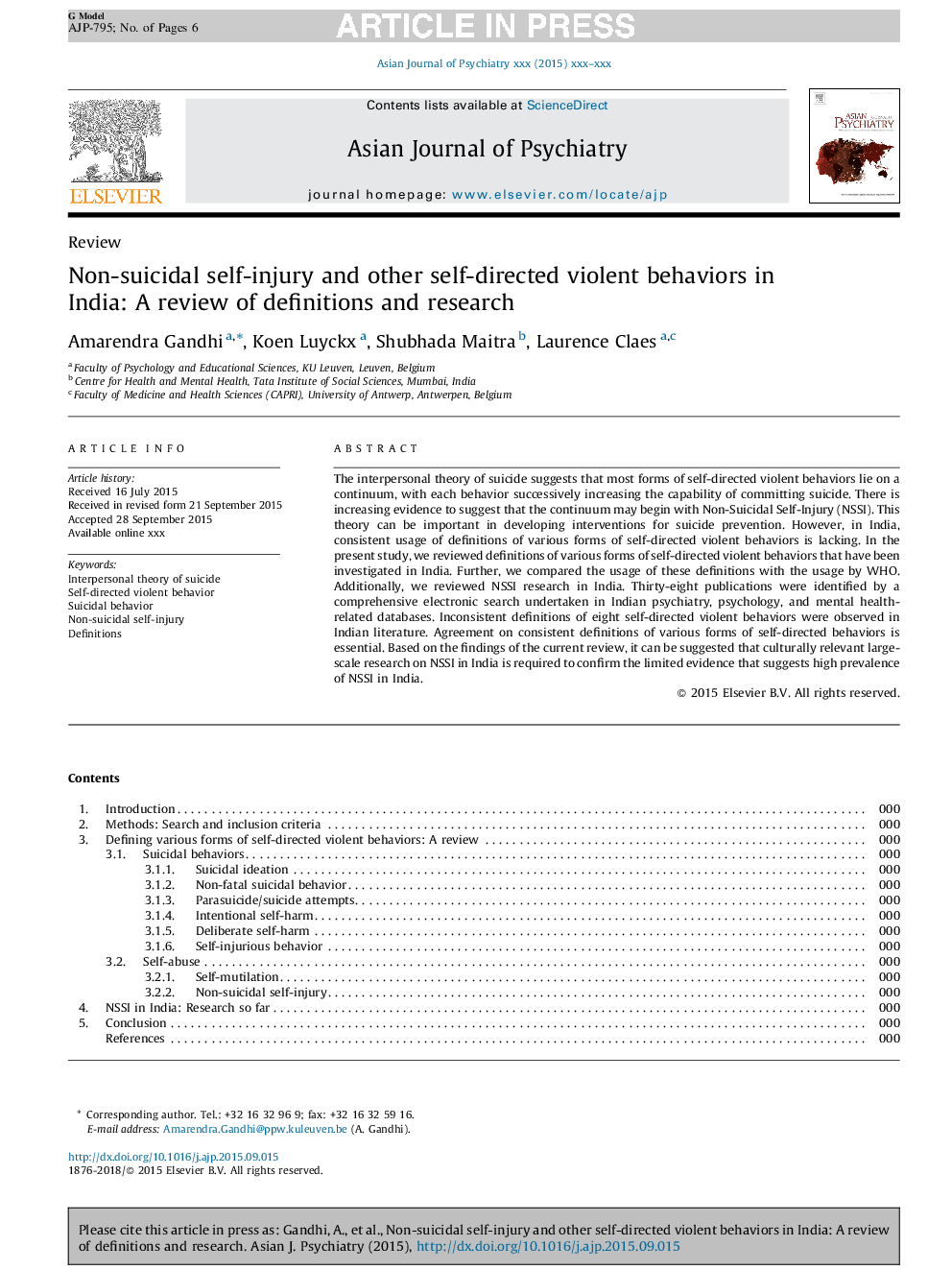| Article ID | Journal | Published Year | Pages | File Type |
|---|---|---|---|---|
| 6787844 | Asian Journal of Psychiatry | 2016 | 6 Pages |
Abstract
The interpersonal theory of suicide suggests that most forms of self-directed violent behaviors lie on a continuum, with each behavior successively increasing the capability of committing suicide. There is increasing evidence to suggest that the continuum may begin with Non-Suicidal Self-Injury (NSSI). This theory can be important in developing interventions for suicide prevention. However, in India, consistent usage of definitions of various forms of self-directed violent behaviors is lacking. In the present study, we reviewed definitions of various forms of self-directed violent behaviors that have been investigated in India. Further, we compared the usage of these definitions with the usage by WHO. Additionally, we reviewed NSSI research in India. Thirty-eight publications were identified by a comprehensive electronic search undertaken in Indian psychiatry, psychology, and mental health-related databases. Inconsistent definitions of eight self-directed violent behaviors were observed in Indian literature. Agreement on consistent definitions of various forms of self-directed behaviors is essential. Based on the findings of the current review, it can be suggested that culturally relevant large-scale research on NSSI in India is required to confirm the limited evidence that suggests high prevalence of NSSI in India.
Related Topics
Life Sciences
Neuroscience
Neuroscience (General)
Authors
Amarendra Gandhi, Koen Luyckx, Shubhada Maitra, Laurence Claes,
